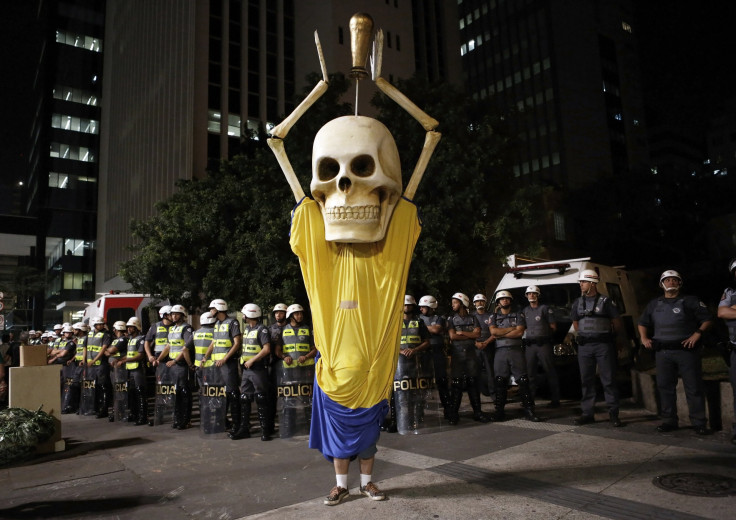Swine Flu Gives Brazil Another World Cup Headache

As if Brazil did not have enough problems with unfinished stadiums and shantytown riots, a new problem has hit one of the 2014 World Cup host cities: Swine flu has claimed two lives in the Amazon city of Manaus in the last month.
These latest casualties bring the total number of cases of H1N1 virus to 11 since the beginning of the year, including three deaths, as reported by the Foundation for Health Services in the Brazilian state of Amazonas. Fifteen more people are in quarantine with symptoms of the disease, awaiting test results.
Manaus has been criticized by the international soccer community since the World Cup draw last December, when it was decided which city would host each game.
“Everyone wants to avoid Manaus, there is no doubt about it,” said U.S. coach Jurgen Klinsmann, whose team will play Portugal in the city on June 22. “It is an unlucky decision to have a location like that, so far and with such different weather conditions.”
Certainly, Manaus has its challenges. It is located 700 miles (1,100 kilometers) inland, in the heart of the Amazon jungle, and more than 1,300 miles, or 2,100 kilometers, from Rio de Janeiro and São Paulo. From either city, where most of the teams will be staying, it takes around four hours to fly. Travel by land is virtually nonexistent, since Manaus is connected to the coast by one single dusty road that, due to the tropical climate, gets flooded often.
Being in the largest jungle on the planet, Manaus' climate is extremely hot and humid all year long, with a 70 percent chance of rain every day and an average temperature of 86 degrees Fahrenheit (30 centigrade) in June. Not the best weather to play sports in, as England coach Roy Hodgson put it.
“Temperatures are so much higher than anywhere in the country, it will be a challenge for the players to do all the acclimatization and preparation to be ready in time,” he said. England will play Italy in Manaus on June 14.
That climate is also prime breeding ground for H1N1, which explains why the virus has hit Manaus harder than any other city in the country. “Climate was a major driver of the impact of H1N1 in Brazil. Temperature and humidity increase the spread of the virus,” reported medical nonprofit PLOS in a paper about the 2009 swine flu epidemic.
Brazil was one of the hardest hit countries in the 2009 outbreak of swine flu -- from July 2009 to January 2010, 1,632 people died of the disease in Brazil, a number only surpassed in the U.S., which saw 2,328 victims, according to the World Health Organization.
Vaccination is the best way to protect against H1N1, according to the U.S. Department of Health and Human Services. Brazil has been offering free flu shots since 2009, and started a vaccination campaign in early April, when the first death in Manaus was reported.
© Copyright IBTimes 2024. All rights reserved.











